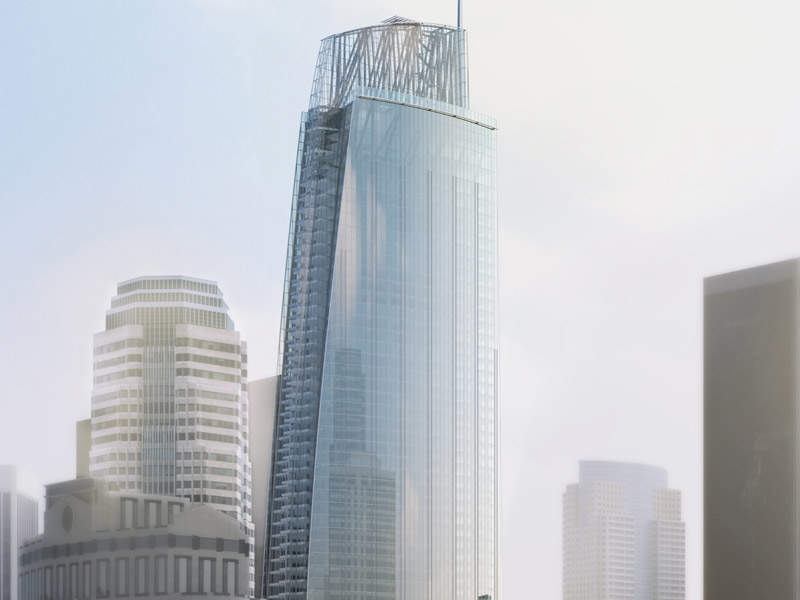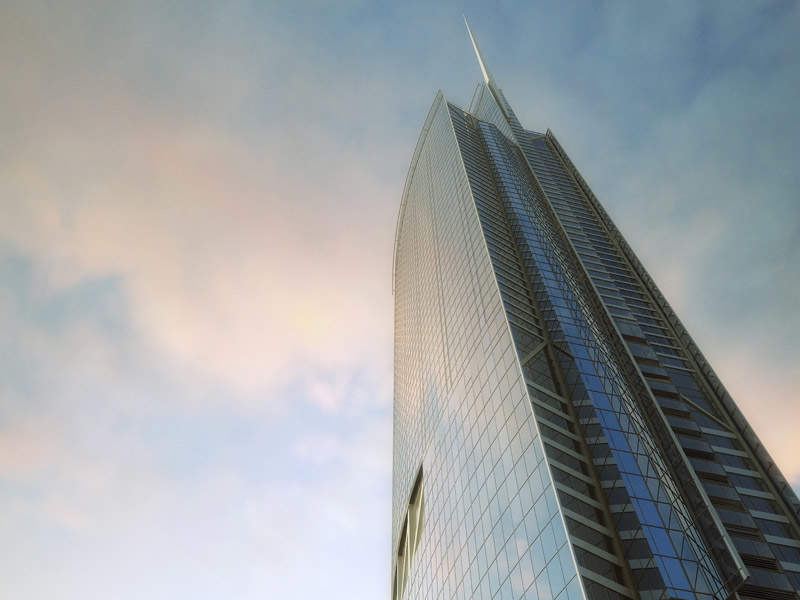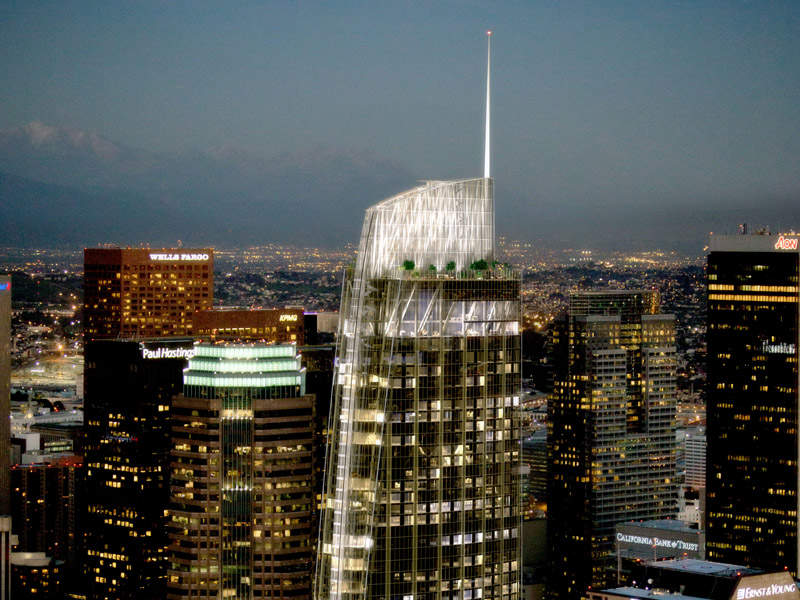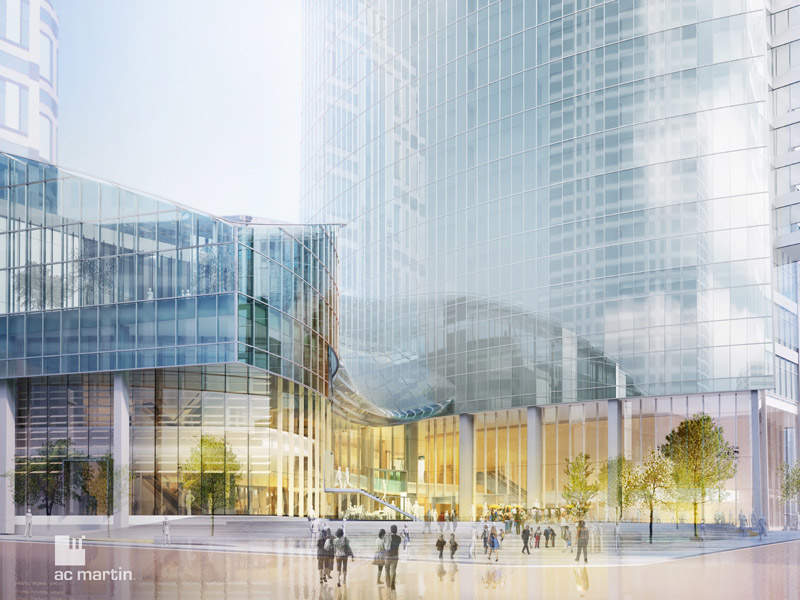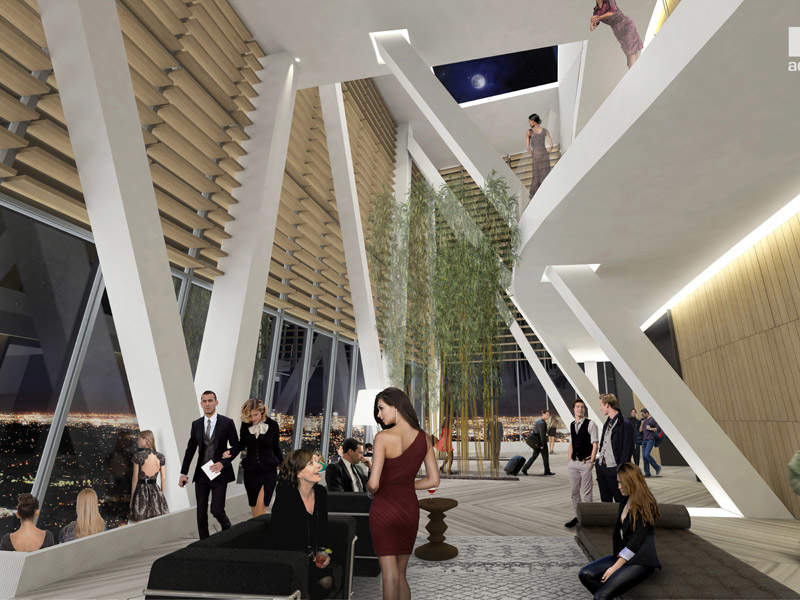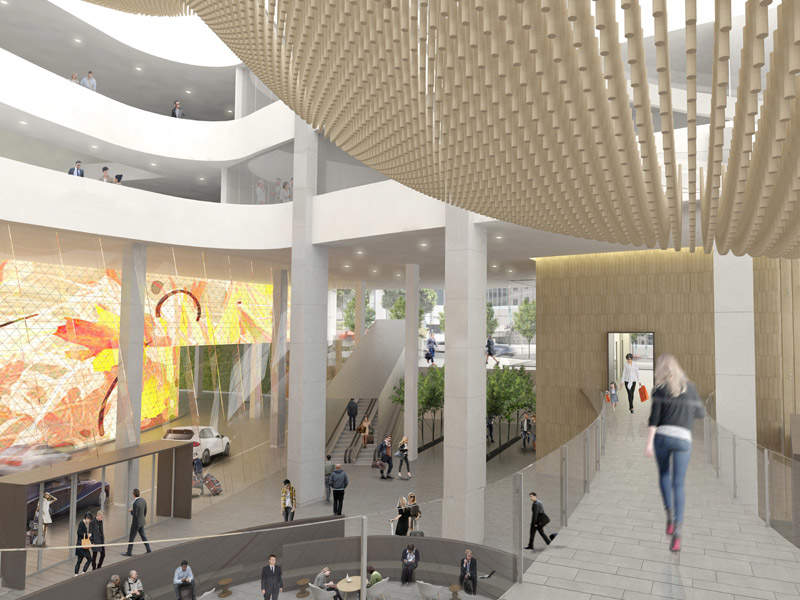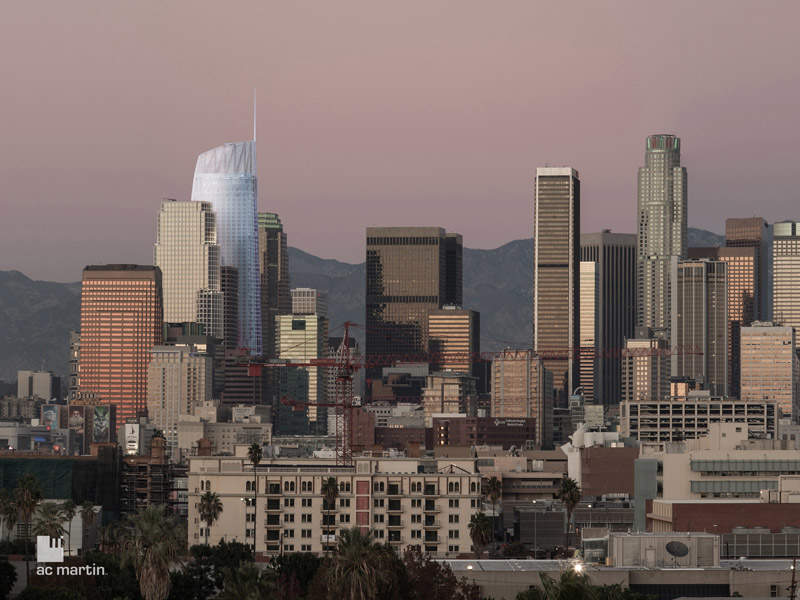The Wilshire Grand Centre is a large-scale, urban mixed-use project developed at the site of the former Wilshire Grand Hotel, in downtown Los Angeles, US. At 1,100ft, the Wilshire Grand Centre redefined the city’s skyline when it opened in June 2017.
The building was designed by AC Martin, and the project is developed for both Hanjin International and Korean Airlines. It includes a new luxury hotel, office, and retail space, along with other amenities.
The project connects with major attractions of the city, such as the Staples Centre, the Convention Centre, LA Live, the Nokia Theater, and the Walt Disney Concert Hall. It also adds to the city’s thriving travel and tourism industry.
Construction on the 73-storey skyscraper began with the demolition of the Wilshire Grand Hotel in 2013. The project holds the Guinness World Record for the highest and largest continuous placement of structural concrete. The topping-out ceremony of the tower took place in March 2016.
Wilshire Grand Centre design
A unique design feature of the tower is its sail-shaped crown, which is illuminated with light-emitting diode (LED) lighting. It is accompanied by a lit-glass base and a spire.
The tower is the first building in Los Angeles to feature a curved roof, forming a dome, and not the traditional flat roof, which is common to most of the city’s skyscrapers. Displaying a glassy exterior, the tower is in contrast to its neighbouring granite buildings.
Designed to portray the city’s culture and climate, the skyscraper is equipped with floor-to-ceiling glass windows, allowing in natural light. Its open design also succeeds in creating an urban centre, which functions as an activity hub with recreational and public spaces.
Wilshire tower structural details
The tower’s structure includes a concrete core shear wall, a concrete-filled metal deck, and steel floor framing. On the outside, the structure comprises a curtain wall and a storefront glazing system.
A rectangular four-cell cast forms the superstructure lateral system. Outriggers are fitted laterally, accompanied by buckling restrained-brace diagonals to enhance wind and seismic performance. Concrete-filled metal deck floor slabs, supported by composite steel wide-flange framing form the building’s gravity system.
The tower’s glass facade features a parametric panelisation, which is in sync with its slab geometry.
Facilities at the Mississippi’s tallest structure
At the top of the tower, there is a sky lobby, offering panoramic views of the city and its neighbouring areas. It also includes an infinity pool. The hotel space is operated by a luxury hotel brand and features 900 state-of-the-art rooms.
Retail and dining are positioned across 45,100ft², in a five-storey podium. The restaurant is a combination of food and culture in Los Angeles, with its vast dining options and ambience.
The tower also houses 400,000ft² of Class A office spaces, which is leased to high-end businesses. It also offers extensive parking space with five levels of basement parking.
Local and regional transits are well connected to the Wilshire Grand Centre, including the use of pedestrian-friendly zones, to increase accessibility for the visitors. Outdoor spaces comprise exterior plazas and canopied spaces that will serve as meeting areas.
The Wilshire Grand Centre’s green design
Material from the former building was recycled for the construction of the tower. Reuse of metal, concrete, and wood has resulted in generating $4m in recycling revenue.
The building incorporates green design and sustainable engineering, in order to achieve a Leadership in Energy and Environmental Design (LEED) silver certification. It utilises innovative lighting and climate systems to reduce energy consumption. A 30% reduction is envisaged in water usage through capturing and recycling water for irrigation and non-drinking purposes.
Contractors for the Wilshire project
Turner Construction is the main contractor for the project, and Brandow & Johnston is the engineer-of-record. Thornton Tomasetti is responsible for structural engineering and performance-based services.
Fortune Shepler Saling supplied the vertical transportation system including double-deck elevators. Materials testing and inspection services were provided by Twining. Cushman and Wakefield handled the leasing of the property.
Survey, airspace mapping and land-use entitlement services were provided by Psomas.

